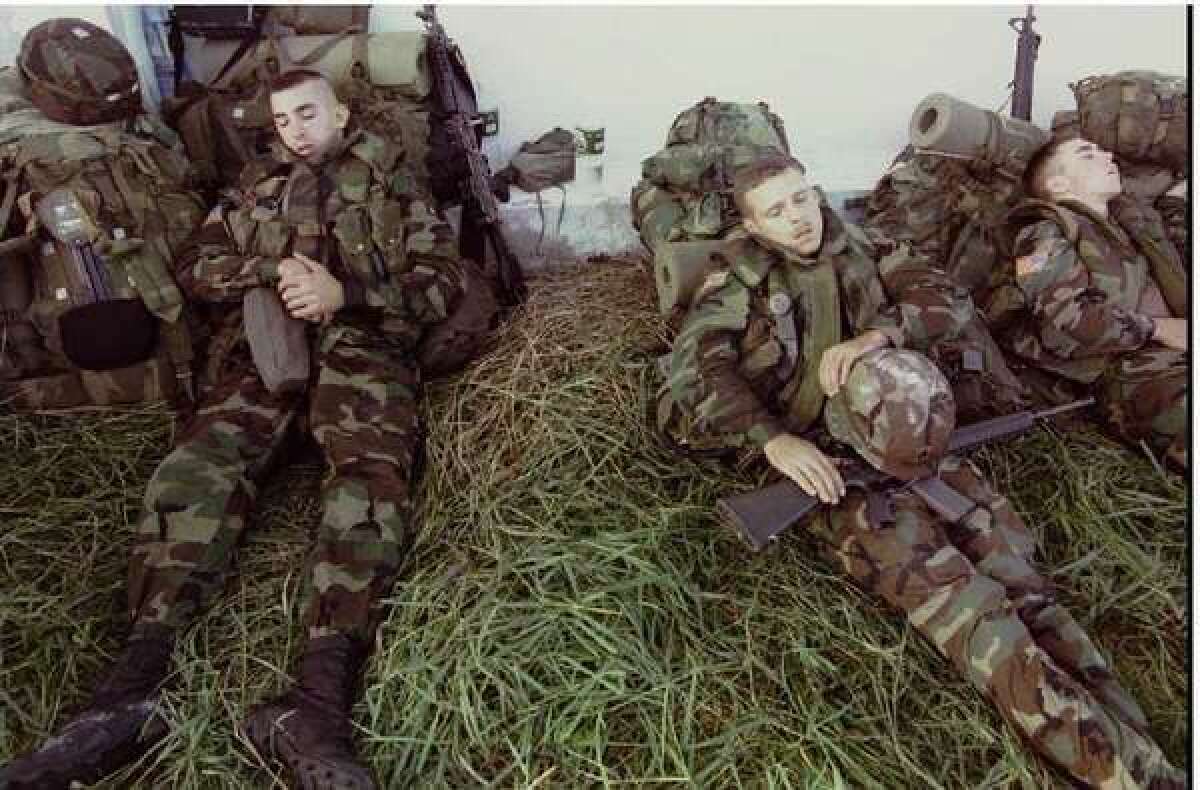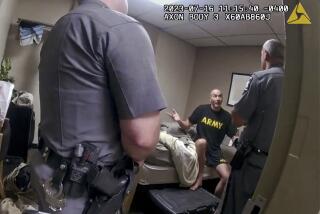History of insomnia raises risk for PTSD and depression in troops

For military personnel sent to war zones, seeing killing, maiming or dead bodies dramatically increases the risk of developing post-traumatic stress disorder and depression. But researchers studying service members deployed to Afghanistan and Iraq have identified another factor that may raise the risk of those psychiatric conditions by almost the same degree: a history of insomnia.
In a study published Friday in the journal Sleep, scientists from the University of Pennsylvania and the Naval Health Research Center in San Diego found that sleep problems before deployment at least doubled the risk for PTSD and quadrupled it for depression.
The work could have practical applications for the military. Identifying and treating sleep problems before deployment could reduce the rate of service members returning home with mental health disorders, the researchers said.
Experts estimate that about 20% of veterans of the wars in Afghanistan and Iraq suffer from PTSD or depression.
Genetics and past life experiences are thought to be important factors in why some are more suspectible than others, though the details are poorly understood.
The new study suggests that “insomnia is the clinical expression of a preexisting vulnerability,” Dr. Thomas Neylan, UC San Francisco psychiatrist who was not involved in the research, wrote in an accompanying commentary.
Using various criteria, the scientists selected 15,204 service members from a military database known as the Millenium Cohort, which was launched in 2001 and tracks the health of tens of thousands of troops through detailed questionnaires completed every few years.
All the study subjects joined the cohort before their first deployment to Afghanistan or Iraq and reported a clean bill of mental health in their initial surveys. About 17% reported symptoms of insomnia.
Analyzing their second questionnaires — completed some time after their first tour — the researchers found 522 with PTSD and 303 with depression. They then conducted a statistical analysis to assess the importance of various risk factors.
Combat exposure was still the most important risk factor. Service members who directly witnessed the horrors of war were three to four times as likely to develop PTSD as those who did not. They were nearly six times more likely to suffer depression.
Insomnia was not far behind. The researchers can only speculate as to how trouble sleeping may increase the risk of mental health problems after deployment.
“There’s a growing body of research showing that sleep is really critical for your ability to regulate your emotions,” said Philip Gehrman, a psychologist and sleep expert at the University of Pennsylvania and lead author of the study.
Alternatively, a lack of sleep can impair decision making. It may be that sleep-deprived soldiers are less likely to seek help after traumatic experiences, Gehrman said.
Behavioral therapy and medications are both used to treat sleep disorders.
“If somebody has a genetic vulnerability, we can’t do anything about it,” Gehrman said. “But sleep is something that you can change.”
Twitter: @alanzarembo







